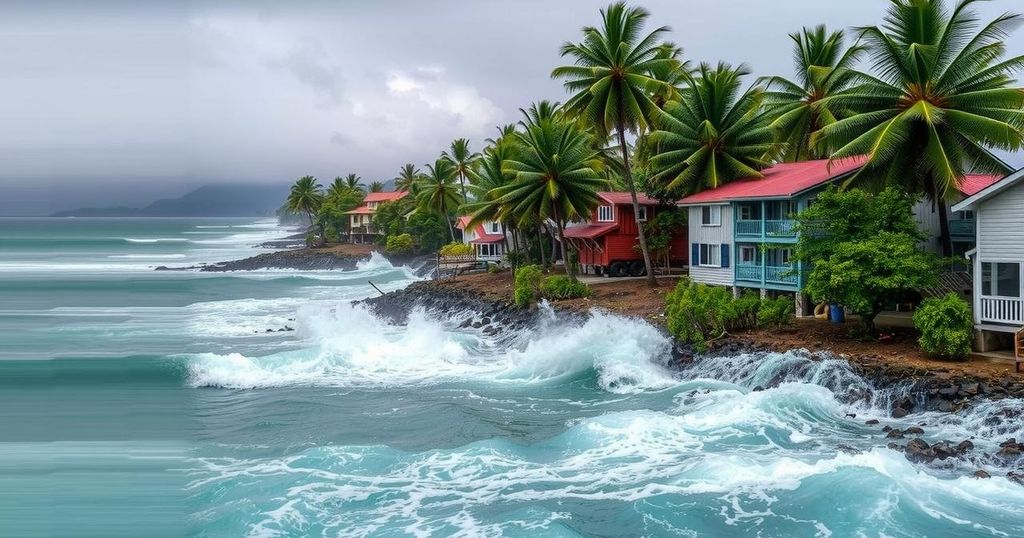Expert Insights on Cyclone Chido’s Impact on Mayotte and Climate Resilience

Cyclone Chido’s strike on Mayotte led to hundreds of fatalities, revealing the vulnerability of small islands to intense weather events. Experts emphasize the need for improved infrastructure, early warning systems, and support for climate resilience to protect communities. The cyclone’s impact is indicative of broader trends linked to climate change and extreme weather intensity.
On 16 December 2024, tropical cyclone Chido struck the French island of Mayotte, resulting in the tragic loss of several hundred lives. Dr. Alex Baker of the University of Reading noted the cyclone’s rapid intensification before reaching land, emphasizing that while forecasts accurately predicted its path, peak intensity was underestimated. He underscored the growing prevalence of conditions leading to such intensification, attributing it, in part, to climate change.
Dr. Helen Hooker highlighted the catastrophic impacts of the cyclone on small islands, stating that limited options for safe relocation exacerbate the danger during such extreme weather events. She advocated for improved infrastructure, early warnings, and communication systems as urgent priorities for national leaders as a response to increasing cyclone intensity.
Professor Liz Stephens echoed these sentiments, indicating that increasing cyclone intensity aligns with expectations of climate change and warmer oceans. She elaborated on the necessity for supportive measures to enhance resilience against tropical cyclones, suggesting that improved evacuation shelters, akin to those in Bangladesh, could significantly reduce fatalities. The devastation in Mayotte serves as a critical reminder of the vulnerability of small island communities to environmental change and the imperative for international support.
The impacts of climate change are becoming more pronounced, particularly in regions susceptible to extreme weather conditions such as tropical cyclones. Mayotte, a small island in the Indian Ocean, faces unique challenges in disaster preparedness and response due to its geographical constraints and socio-economic vulnerabilities. Cyclone Chido’s recent strike has renewed focus on the urgent need for enhanced resilience and infrastructure improvements in island communities threatened by increasingly intense weather patterns associated with a warming climate.
In summary, cyclone Chido’s devastating effects on Mayotte highlight the critical vulnerabilities of small island communities to climate-related disasters. Experts advocate for urgent improvements in disaster preparedness, early warning systems, and resilient infrastructure to mitigate the impacts of future cyclones. Enhanced global support and investment in community resilience can potentially safeguard lives and minimize the damage caused by such extreme weather events in the future.
Original Source: www.reading.ac.uk






